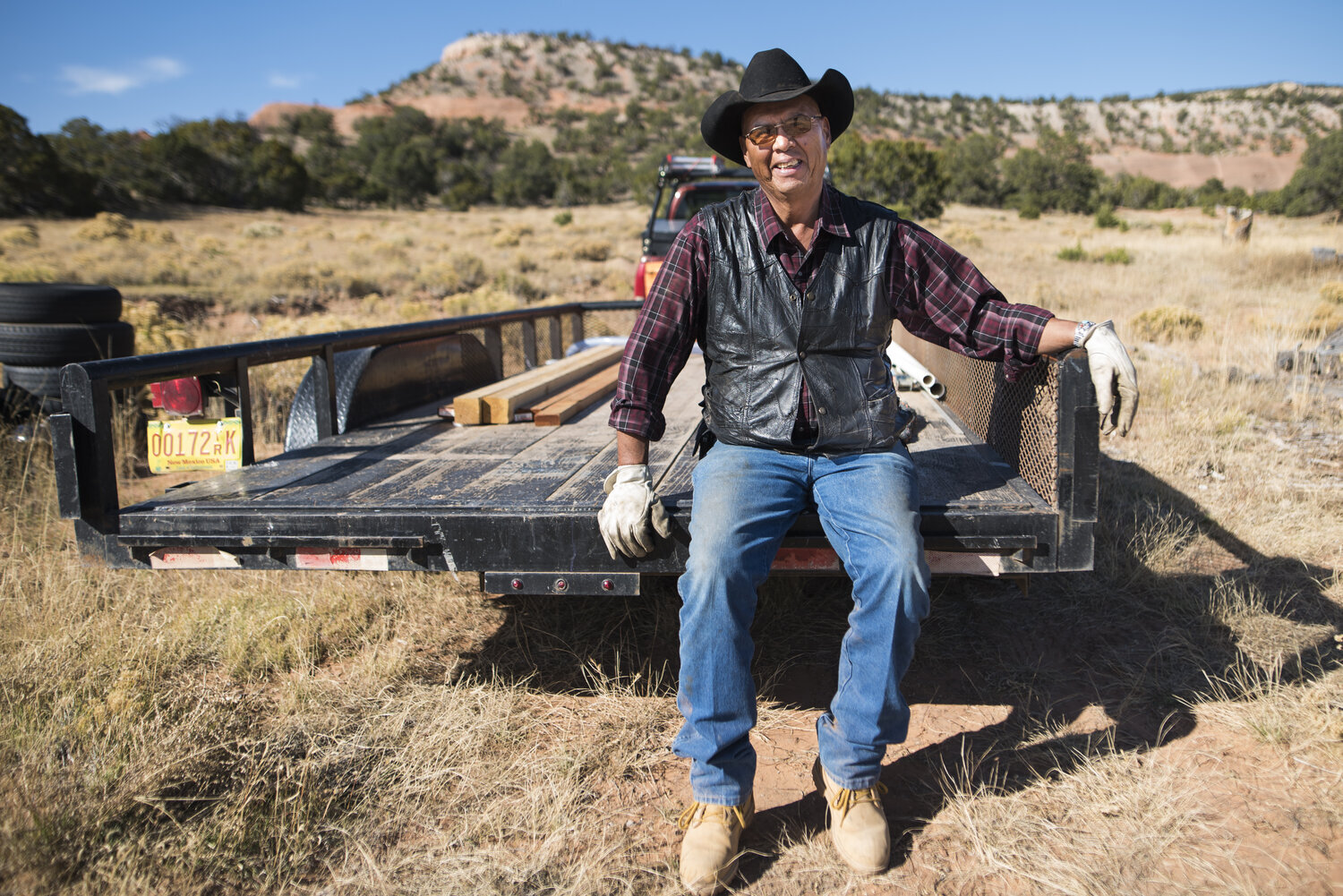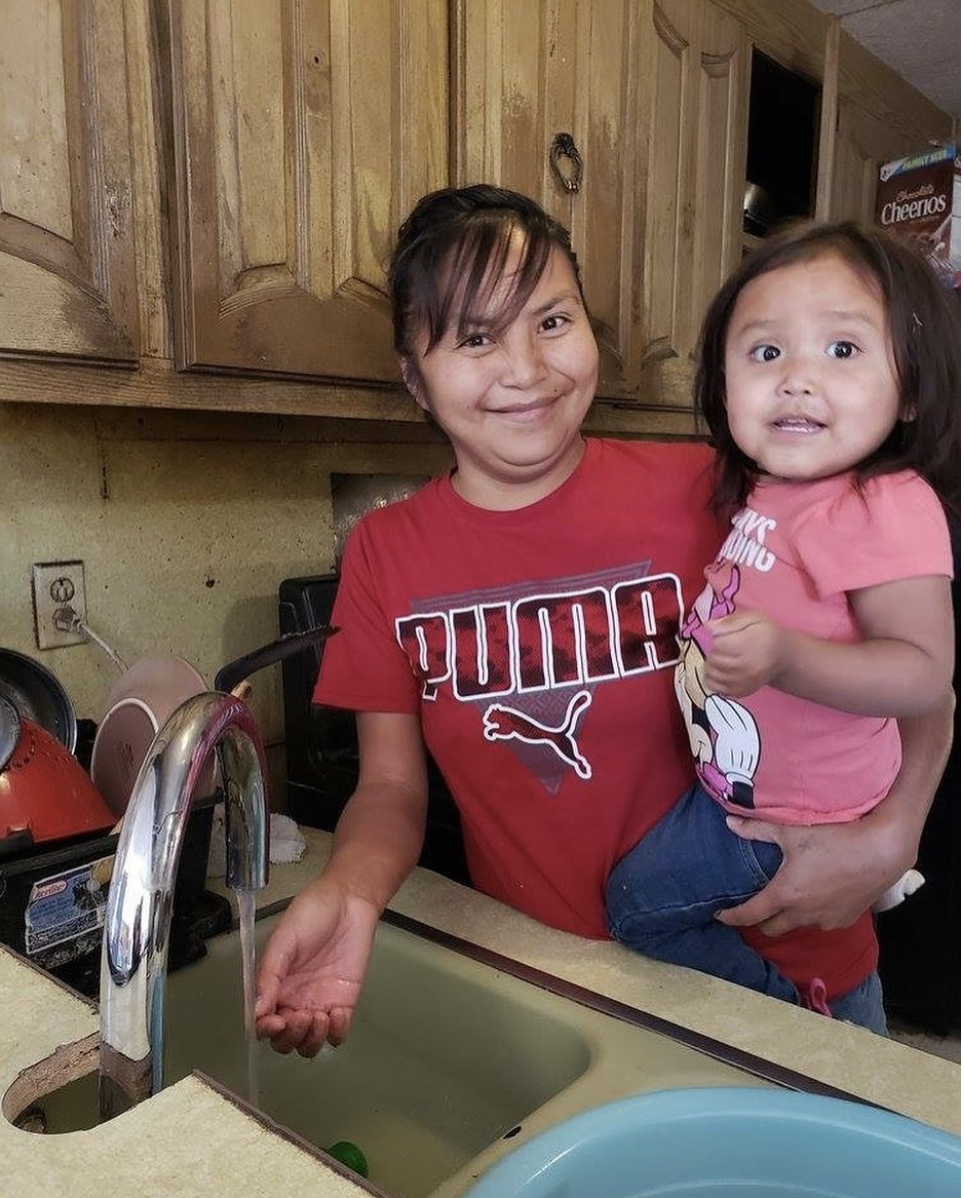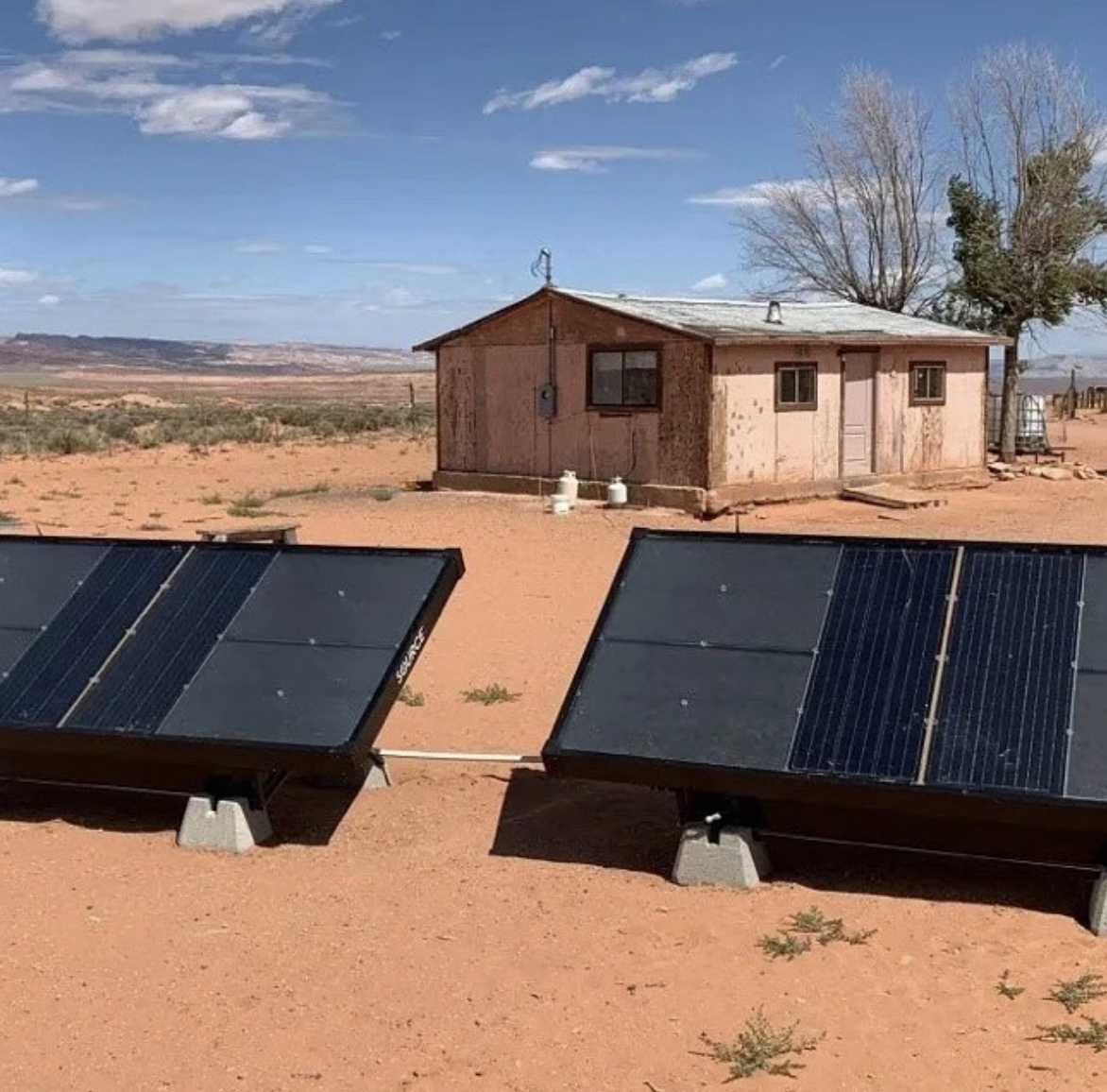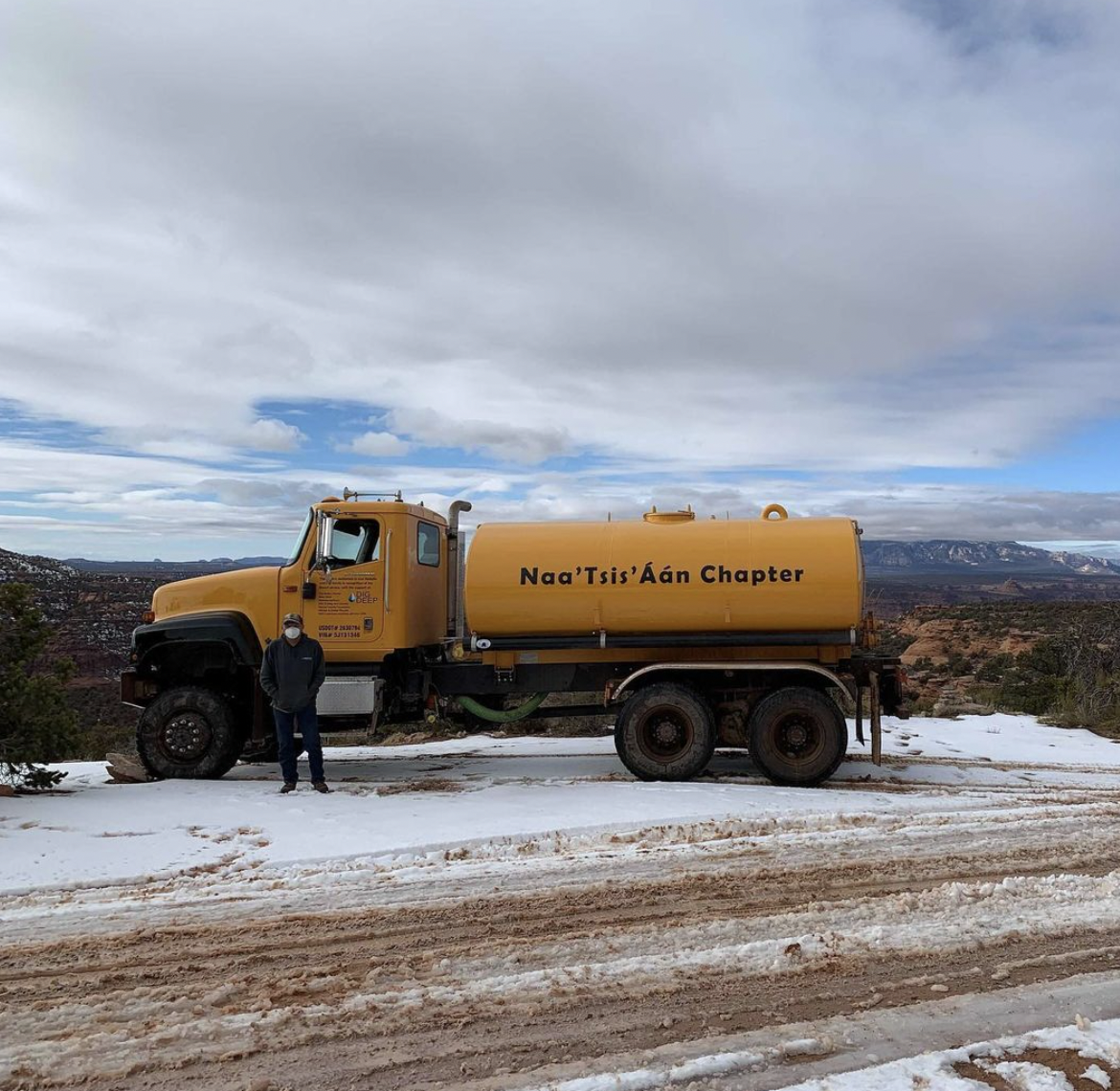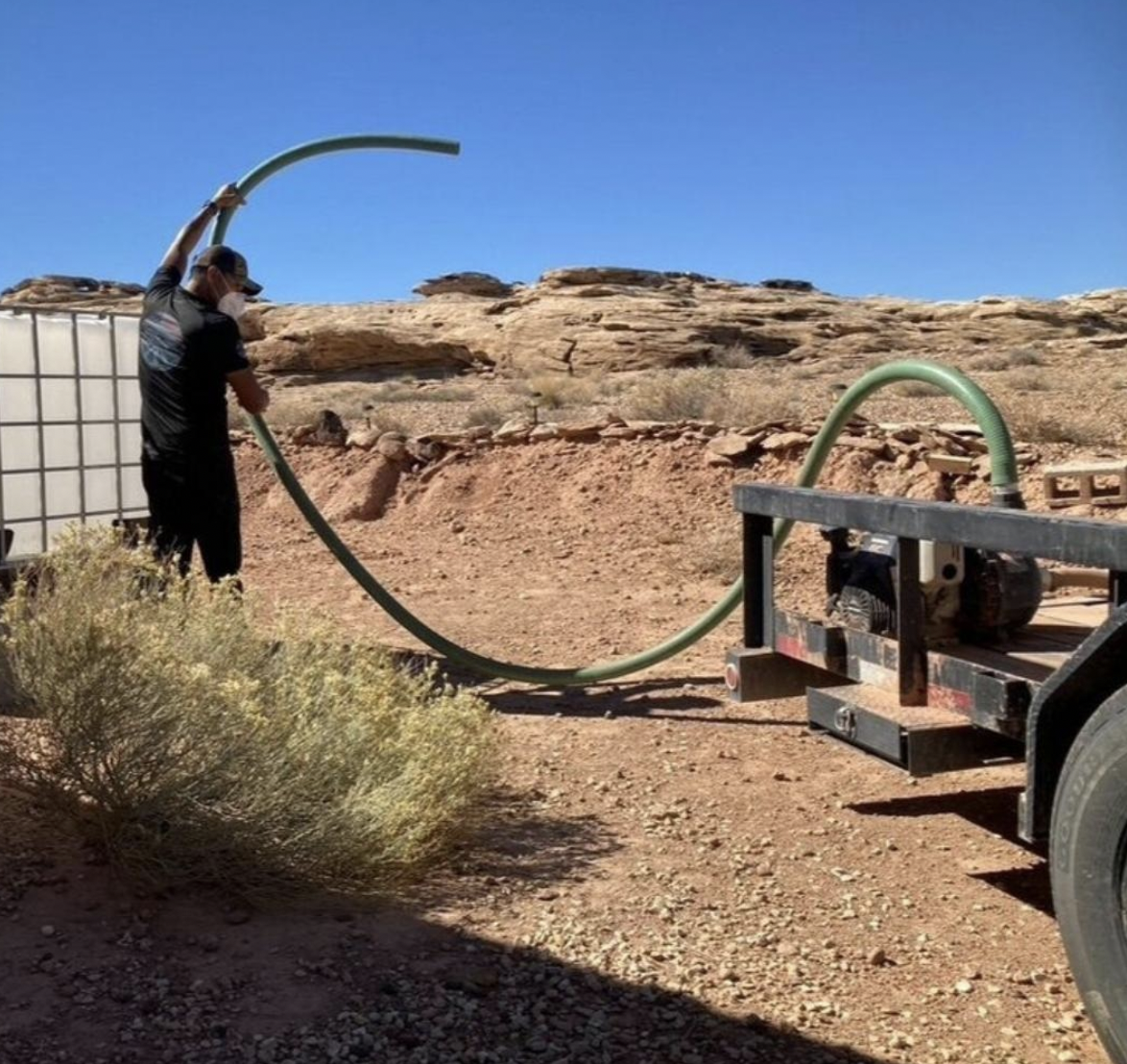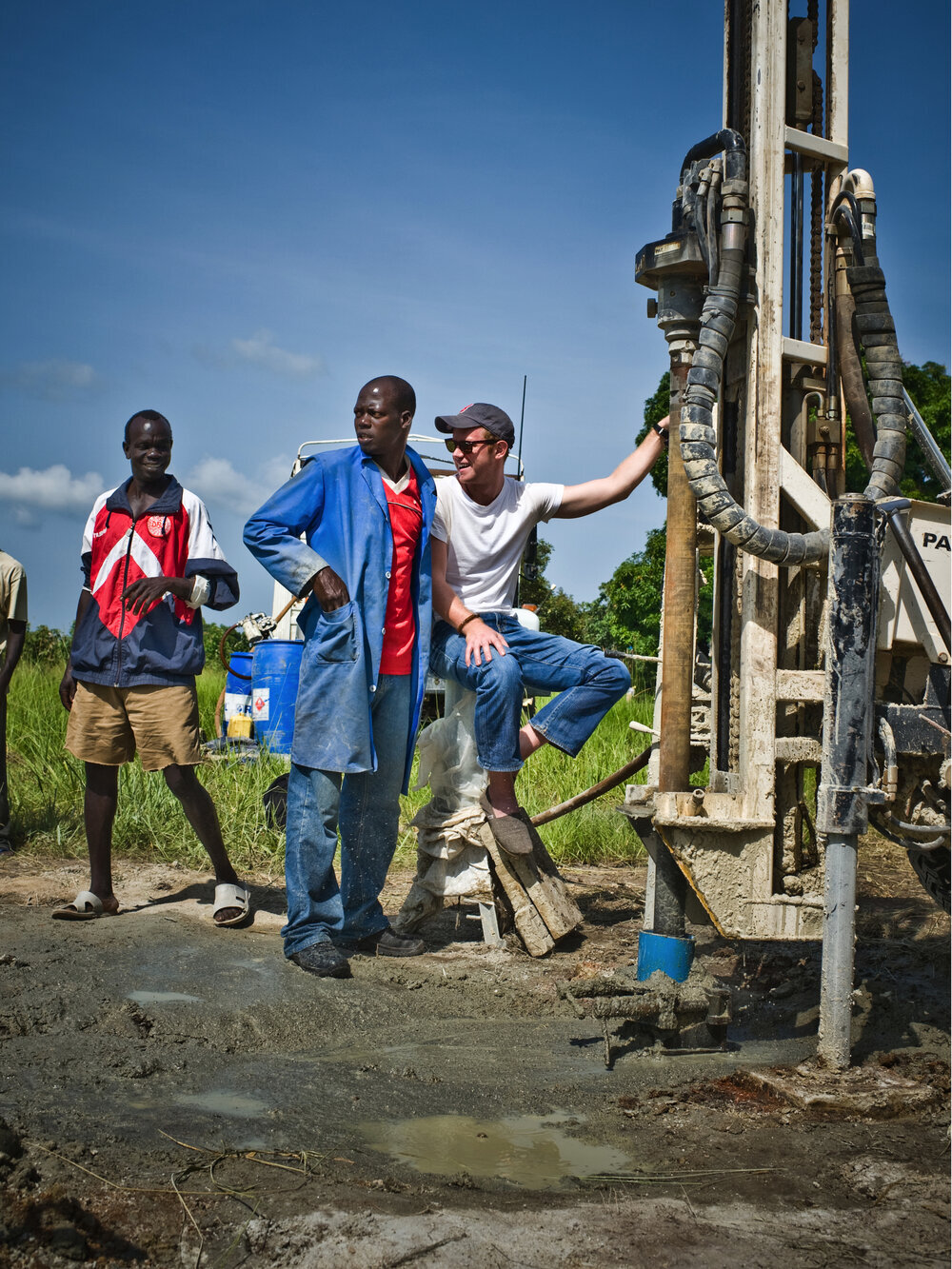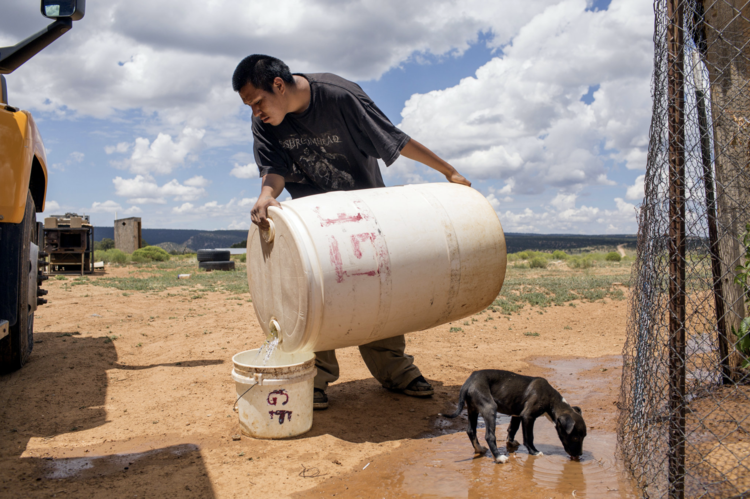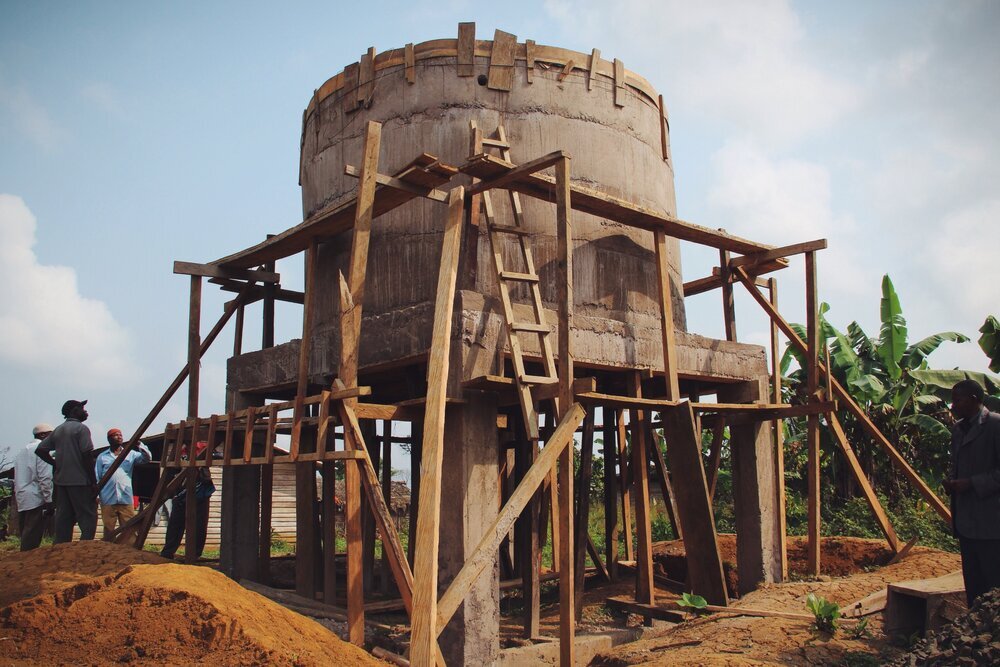Waste Hater: George McGraw
What’s it like to live in an America without running water? Imagine cooking, cleaning, and bathing all with the same small reserve. As George McGraw once learned, for a substantial part of the country, this is reality.
“On one of my first trips to Navajo, a woman came out to the truck I was on delivering water, grabbed a pot full and brought it inside,” the Founder and Executive Director of DIGDEEP, tells Replate. “She went inside and started washing some vegetables with it, but I noticed she was using a cup, washing the vegetables in a strainer then catching the water in a pot again. Then I watched her use that water to boil pasta, then I watched her strain the pasta and bring the water out into the living room and put it in a tupperware bin. Her kids came and they all washed their hair and their hands in that water. Then she took it outside and put it in the latrine and she used it to clean the bathroom.”
He adds, “Most of the Navajos I’ve talked to call that ‘making water stretch.’ They’ll use the water four or five times for various tasks before throwing it away.”
In some ways, it’s resourceful, or as McGraw puts it, illustrates a deeper relationship with natural resources. But it’s also an adaptation to scarcity, and an unnecessary truth that’s easily remedied.
With DIGDEEP, McGraw has set out to find solutions. The nonprofit has operated for over a decade now, working to provide every American with access to clean, running water.
McGraw began his mission in Cameroon and South Sudan, looking at the impacts of insufficient water distribution from an international perspective. While fundraising to build infrastructure in these countries, he was caught off guard by the provision of a donor, who offered to contribute $50 with the caveat that the money be spent in the U.S.
“I was like, ‘You must be crazy! Where in the U.S. are people lacking water?’” McGraw recalls.
After traveling extensively in low income communities abroad, the social entrepreneur didn’t realize he’d overlooked a crisis on his own turf. He investigated the issue further and discovered over 2.2 million Americans were without sinks, bathtubs or toilets or even a way to install them.
Less surprising, these Americans lived primarily in marginalized communities that were overlooked or left behind.
“When the West was settled, rural communities of color and indigenous folks were deliberately kept out of this planning, it’s structural racism,” McGraw observes. “Many families have been coping with it for generations. But kids go to school and they see other kids who do take showers and do have running water, and that positional difference becomes more and more striking and more and more difficult over time.”
So, McGraw began digging more, quite literally, and founded DIGDEEP in 2011. The organization started its work in Navajo Nation, and has expanded across Appalachia and other neglected areas of the country.
The team approaches each situation with principles McGraw learned during his work abroad, yet with tailored, inclusive solutions based on the needs and wants of each community.
“We take the same international playbook, the same principle of, ‘Hey there’s a human right to water and these communities have a right to participate in this process,’ but the technologies look a little different,” McGraw explains. “In Africa, it may be appropriate to build a central borehole near the front door of someone’s home, but in the U.S., the appropriate technology brings reliable hot and cold running water into a house and takes sewage away from it.”
Specifically, in Navajo Nation, DIGDEEP establishes home water systems, providing hot and cold water to houses that can’t get on the grid whether that’s due to a lack of utilities, water lines, or budget. Trucks deliver clean water to homes, where pipers and technicians install systems to store it. Solar powered pumps transport the water into sinks, showers, and toilets.
To date, DIGDEEP has installed more than 300 such systems, as well as provided more than 1,500 emergency water tanks for COVID relief. Its approach is comprehensive, however, not only assisting communities but enabling them to be sustainable. DIGDEEP provides job training for plumbing and piloting; builds septic systems; and assists families in connecting with water lines.
In Appalachia, McGraw’s team reconnects families with services that were abruptly removed.
“In rural West Virginia, families for generations were served by water lines, operated by coal companies,” he explains. “Then, coal moved out and 80% [of the] population moved out, and now there’s no tax base, no one to maintain systems, so thousands of families lost running water and sanitation. They’ve been collecting water from mineshafts and flushing toilets into the stream.”
Now with several projects on the ground, 40,000 grassroot donors, corporate funding, and strategic partnerships, DIGDEEP is committed to making water the public good it once was, and enriching the physical and mental well-being of American citizens.
“The reality is that while [a free market] approach works in some places, it’s never worked for everybody, and it’s working for increasingly fewer people,” McGraw adds. “Our research shows that in six states and Puerto Rico, we’re actually moving backwards in terms of water access. I think we need to get back to viewing water as a public good, taking a more indigenous, spiritual connection to this resource.”
For more information on clean water shortages and access to resources in the U.S., take a look at the U.S. Water Alliance, Groundwork USA, the Urban Waters Learning Network, and the Pulitzer Center.
If you’d like to get involved or support those advocating for this issue, you can learn more about DIGDEEP on their website, or check out organizations like Clean Water Action and the Columbia Water Center.

